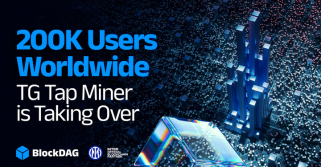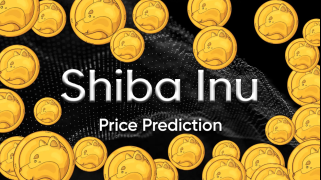
Significance of a block reward in cryptocurrency
加密货币中区块奖励的意义
A block reward is a crucial component that supports the decentralized nature of cryptocurrencies and has great symbolic and functional importance.
区块奖励是支持加密货币去中心化性质的关键组成部分,具有巨大的象征意义和功能重要性。
Fundamentally, a block reward is the payment made to crypto miners for adding authorized transactions to the network. This process, known as mining, involves completing challenging mathematical puzzles, adding computing power to the network and preserving the distributed ledger’s integrity.
从根本上来说,区块奖励是向加密矿工向网络添加授权交易而支付的费用。这个过程被称为挖掘,涉及完成具有挑战性的数学难题、增加网络的计算能力并保持分布式账本的完整性。
The importance of a block reward lies in the fact that it serves as the primary source of incentive for miners, creating a competitive atmosphere that protects the security and stability of the network as a whole. In addition to compensating miners for their computing efforts, it is essential to create new coins and efficiently manage cryptocurrency distribution and circulation. This dual role supports the overall supply and demand dynamics of the digital currency along with maintaining an incentive structure for miners.
区块奖励的重要性在于它作为矿工的主要激励来源,营造了一种竞争氛围,保护了整个网络的安全和稳定。除了补偿矿工的计算工作外,创造新货币并有效管理加密货币的分配和流通也至关重要。这种双重角色支持数字货币的整体供需动态,并维持矿工的激励结构。
Furthermore, by eliminating the requirement for a central authority to control or issue currency, the block reward exemplifies the principle of decentralization. It creates an open, transparent, self-sustaining system where users are compensated for their efforts, enhancing the ecosystem’s innovative and democratic features.
此外,通过消除中央机构控制或发行货币的要求,集体奖励体现了去中心化原则。它创建了一个开放、透明、自我维持的系统,用户的努力得到补偿,增强了生态系统的创新和民主特征。
Components of a block reward
区块奖励的组成部分
The mining reward and transaction fees are the two main parts of cryptocurrency block rewards, and they both serve as powerful incentives for miners.
挖矿奖励和交易费用是加密货币区块奖励的两个主要部分,它们都对矿工有强大的激励作用。
The predetermined amount of newly minted coins is known as the mining reward, and it is often awarded to miners in exchange for successfully adding a new block to the blockchain. This part acts as the incentive system for miners in addition to bringing new cryptocurrency into circulation.
预定数量的新铸造代币被称为挖矿奖励,通常会奖励给矿工,以换取成功向区块链添加新区块的矿工。除了将新的加密货币引入流通之外,这部分还充当矿工的激励系统。
The second element is transaction fees, which are amounts users must pay to have their transactions included in a block. By encouraging miners to prioritize transactions with greater fees, this feature maximizes the blockchain’s efficiency.
第二个要素是交易费用,这是用户必须支付的金额才能将其交易包含在区块中。通过鼓励矿工优先处理费用更高的交易,此功能最大限度地提高了区块链的效率。
The combination of mining rewards and transaction fees creates a robust incentive structure for miners, promoting network security, decentralization and transaction validation. Together, these elements provide the economic framework that keeps cryptocurrencies decentralized and in line with miners’ incentives for the general well-being and operation of the blockchain.
挖矿奖励和交易费用的结合为矿工创造了强大的激励结构,促进网络安全、去中心化和交易验证。这些要素共同提供了经济框架,使加密货币保持去中心化,并符合矿工对区块链整体福祉和运营的激励。
How block rewards are calculated
区块奖励如何计算
Cryptocurrency block rewards are determined by complex dynamics in which fixed and variable components are important.
加密货币区块奖励是由复杂的动态决定的,其中固定和可变成分很重要。
Some cryptocurrencies have fixed block rewards, where a set number of coins is issued for each block that is mined successfully. On the other hand, others employ variable rewards, which are frequently dependent on variables like network participation or computing difficulty. For example, the mining incentive for Bitcoin (BTC) is halved approximately every four years. This intentional scarcity, which is reminiscent of digital gold, functions to regulate the total supply. Similar to digital gold, this deliberate scarcity controls the total supply.
一些加密货币具有固定的区块奖励,即为成功开采的每个区块发行一定数量的硬币。另一方面,其他人则采用可变奖励,这通常取决于网络参与或计算难度等变量。例如,比特币(BTC)的挖矿激励大约每四年减半。这种故意的稀缺性让人想起数字黄金,其作用是调节总供应量。与数字黄金类似,这种故意的稀缺控制了总供应量。
Halving events have a significant impact on the crypto landscape because they can influence market dynamics and miner incentives. For instance, miners are forced to rely on transaction fees as the reward decreases, highlighting the growing importance of this variable component. Furthermore, mining incentives and difficulty have a mutually beneficial relationship. This is due to an algorithmic adjustment mechanism that keeps block creation times constant.
减半事件对加密货币格局产生重大影响,因为它们可以影响市场动态和矿工激励。例如,随着奖励的减少,矿工被迫依赖交易费,这凸显了这一可变因素的重要性日益增加。此外,挖矿激励和难度之间存在互惠互利的关系。这是由于算法调整机制使区块创建时间保持恒定。
The degree of difficulty varies dynamically with the amount of processing power (hash rate) used in the mining process. Maintaining the intended block generation time becomes increasingly challenging as more miners join the network and the hash rate rises. On the other hand, the difficulty will reduce as the hash rate drops.
难度随着挖矿过程中使用的处理能力(哈希率)的变化而动态变化。随着越来越多的矿工加入网络并且哈希率上升,维持预期的区块生成时间变得越来越具有挑战性。另一方面,随着算力下降,难度也会降低。
Rewards frequently adjust to balance the work necessary for a successful block validation as mining difficulty rises. This complex interaction between fixed and variable elements, halving occasions, and mining difficulty exemplifies the rigorous calculus behind determining block rewards in the ever-evolving world of cryptocurrencies.
随着挖矿难度的上升,奖励会经常调整,以平衡成功区块验证所需的工作。固定和可变元素、减半事件和挖矿难度之间的复杂相互作用体现了在不断发展的加密货币世界中确定区块奖励背后的严格计算。
Bitcoin’s block reward mechanism
比特币的区块奖励机制
Bitcoin’s block reward systems have been pivotal in the development of the cryptocurrency landscape.
比特币的区块奖励系统在加密货币领域的发展中发挥了关键作用。
At its inception, miners received 50 BTC for successfully adding a new block to the blockchain under the fixed block reward mechanism. However, approximately every four years, Bitcoin experiences halving events that cut the reward in half to preserve scarcity and replicate the scarcity of precious commodities like gold. With just 21 million BTC in circulation, this deflationary strategy aims to improve the cryptocurrency’s store-of-value properties.
成立之初,矿工在固定区块奖励机制下成功向区块链添加新区块即可获得 50 BTC。然而,大约每四年,比特币就会经历减半事件,将奖励减少一半,以保持稀缺性并复制黄金等贵重商品的稀缺性。由于流通中的比特币仅有 2100 万枚,这种通货紧缩策略旨在改善加密货币的价值存储特性。
Other cryptocurrencies often draw inspiration from Bitcoin but showcase diverse reward structures. For instance, cryptocurrencies like Dogecoin (DOGE) and Litecoin (LTC) closely resemble Bitcoin’s halving method and adjust their block rewards on a regular basis.
其他加密货币通常从比特币中汲取灵感,但展示了不同的奖励结构。例如,狗狗币(DOGE)和莱特币(LTC)等加密货币与比特币的减半方法非常相似,并定期调整其区块奖励。
On the contrary, the entire supply of Ripple’s XRP (XRP) was premined, negating the need for traditional mining and block rewards. Using a proof-of-stake (PoS) consensus process, the Ethereum blockchain selects validators to build new blocks according to the quantity of Ether (ETH) they possess and are prepared to stake as collateral.
相反,Ripple 的 XRP (XRP) 的全部供应都是预先开采的,消除了对传统采矿和区块奖励的需求。使用权益证明(PoS)共识流程,以太坊区块链根据验证者拥有的以太币(ETH)数量选择验证者来构建新区块,并准备作为抵押品进行质押。
Technological advancements and their influence on block rewards
技术进步及其对区块奖励的影响
Innovations in technology can increase mining productivity, potentially reducing transaction fees as a share of total miner income.
技术创新可以提高挖矿生产率,有可能降低交易费用占矿工总收入的比例。
The computing power devoted to blockchain validation is directly impacted by the effectiveness and capabilities of mining devices. Therefore, technological developments in mining hardware and software have the potential to greatly boost mining productivity, enabling miners to process more transactions while using less energy.
用于区块链验证的计算能力直接受到挖矿设备的有效性和功能的影响。因此,采矿硬件和软件的技术发展有可能大大提高采矿生产率,使矿工能够在使用更少的能源的同时处理更多的交易。
Increased competition among miners due to efficient mining may result in a drop in transaction fees as a share of total miner income. It may, however, also raise the network’s difficulty and hash rate, which would make it more challenging for individual miners to compete.
由于高效挖矿,矿工之间的竞争加剧可能会导致交易费用占矿工总收入的比例下降。然而,它也可能会提高网络的难度和哈希率,这将使个体矿工的竞争更具挑战性。
By influencing transaction fees, technological advancements in blockchain scalability solutions like layer-2 protocols (such as Bitcoin’s Lightning Network) or alternative consensus methods can indirectly affect block rewards. Reduced competition for block space and cheaper transaction fees could result from these solutions if they can boost the network’s transaction throughput. This, in turn, may impact the miners’ total earnings.
通过影响交易费用,区块链可扩展性解决方案(例如第 2 层协议(例如比特币的闪电网络)或替代共识方法)的技术进步可以间接影响区块奖励。如果这些解决方案能够提高网络的交易吞吐量,那么它们可能会减少对区块空间的竞争并降低交易费用。反过来,这可能会影响矿工的总收入。


 Optimisus
Optimisus Optimisus
Optimisus DeFi Planet
DeFi Planet Crypto Daily™
Crypto Daily™ BlockchainReporter
BlockchainReporter TheCoinrise Media
TheCoinrise Media DogeHome
DogeHome Crypto Daily™
Crypto Daily™ Crypto Daily™
Crypto Daily™






















